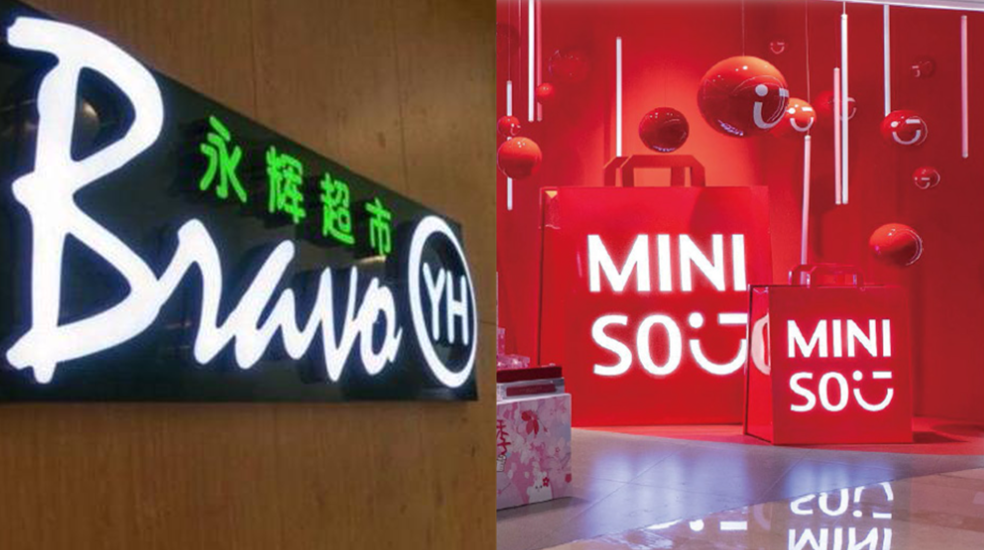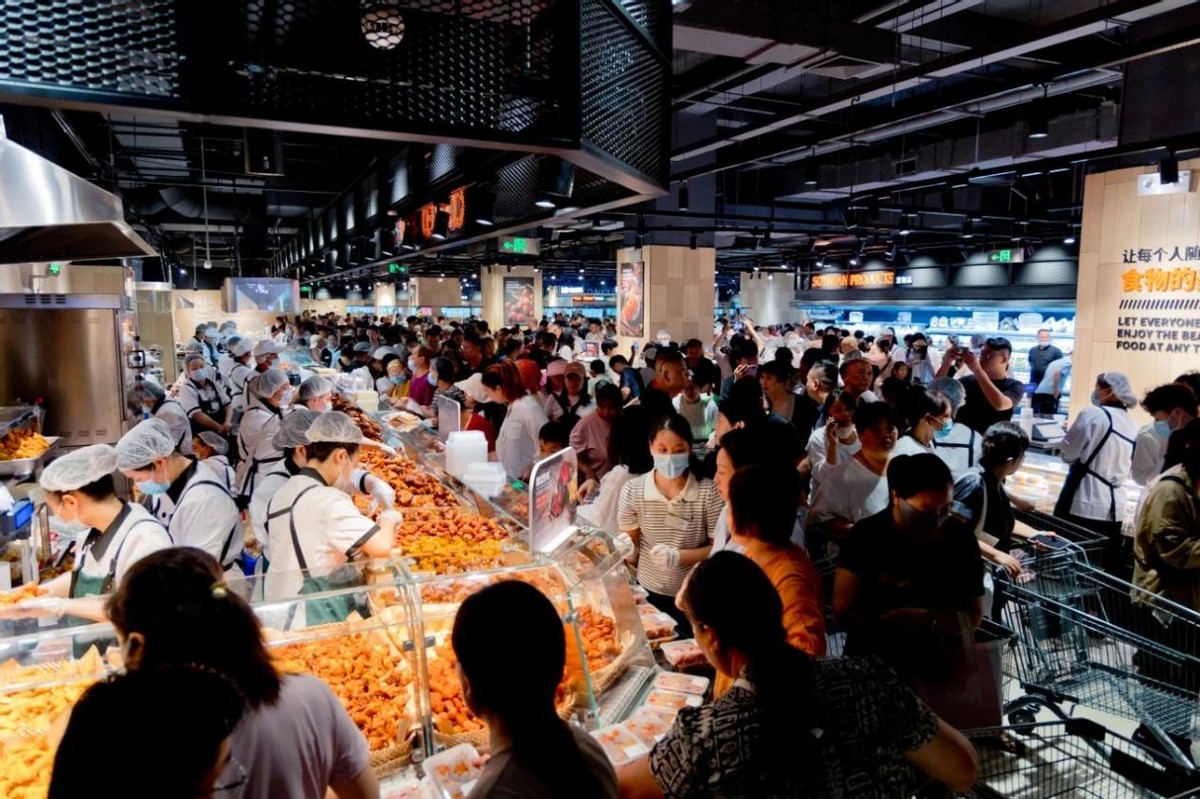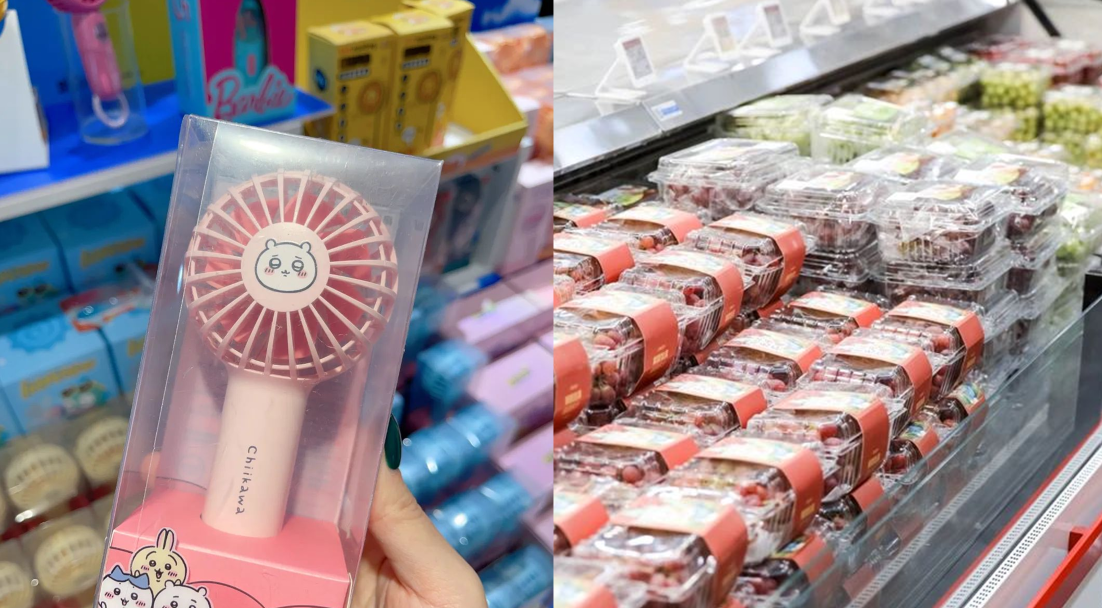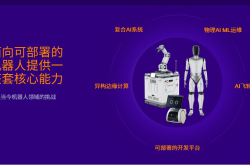"Yonghui Quality Goods" - Will It Be the Answer to China's Retail Industry?
![]() 09/26 2024
09/26 2024
![]() 520
520

Did investors understand MINISO's big bet so quickly?
On September 25, Yonghui Supermarket continued to see its share price surge to its daily limit, while surprisingly, MINISO also rebounded by nearly 8%.
With MINISO announcing on the evening of September 23 that it had acquired a 29.4% stake in Yonghui Supermarket for RMB 6.27 billion through the Hong Kong Stock Exchange, both companies experienced significant fluctuations in the secondary market. Yonghui Supermarket hit its daily limit the next day, while MINISO's Hong Kong shares fell by more than 30% at one point.
Investors are skeptical about MINISO's heavy investment in a traditional supermarket. Currently, MINISO has less than RMB 7 billion in cash and cash equivalents on its books, and it has gone all in to become Yonghui Supermarket's largest shareholder.
In response to various opinions, MINISO's founder Ye Guofu bluntly stated on WeChat Moments, "It's normal that everyone doesn't understand. If they did, I wouldn't have the opportunity."
So, why did MINISO decide to invest in the former "first fresh food stock"? What opportunity did they see?
The Troubles of a Retail Star
The story of this investment began like this: In recent years, MINISO has become a representative specialty retail brand through its excellent IP collaborations and operational capabilities. In the first half of this year, MINISO's revenue increased by 25% year-on-year to RMB 7.76 billion, with adjusted net profit growing 18% to RMB 1.24 billion.
Moreover, MINISO seized the opportune moment to expand overseas, achieving high growth in overseas markets, a dream for countless domestic retail enterprises. The company has become the largest Asian consumer brand in the US retail network (with the most offline stores), and its overseas market revenue in Q2 increased by 35.5% year-on-year to RMB 1.51 billion.
A series of data paint a compelling growth narrative for MINISO. However, despite being an admired retail star, the company still faces its own "troubles."
Firstly, making money in the domestic market is becoming increasingly difficult.
In the first half of the year, while MINISO's total GMV (Gross Merchandise Value) for mainland stores maintained growth, same-store GMV actually decreased by 1.7% year-on-year. Behind the overall growth lies a 16.0% year-on-year increase in the number of stores and a 0.9% increase in average transaction value per customer.
In other words, MINISO has entered a stage of "scale + price for growth," with its cost-effectiveness advantage weakening and customer transactions declining. The imagination of its former "fashion department store" model is narrowing.
Secondly, there are concerns about the sustainability of overseas market growth.
In this regard, MINISO's founder and CEO Ye Guofu mentioned during a conference call that Chinese people are the best at imitation. Now that all Chinese companies are talking about going overseas, it will soon become a red ocean.
Based on these two perceptions, MINISO began to consider how to achieve sustainable operations. Ye Guofu has studied the models of Costco and Sam's Club in depth and conducted extensive research on the US retail landscape. Amidst the growing popularity of the "Pang Donglai model" in China, which "emphasizes customer experience and employee respect, has no membership system, and is more suitable for Chinese family consumption," it caught his attention.
Ye Guofu proposed: firmly believing in the opportunities in China's offline retail industry. China's offline supermarket market is facing a structural opportunity that comes once every 20 years.
Yonghui Supermarket, after being "transformed" by Pang Donglai, captured MINISO's heart
Traditional supermarkets are embarking on a wave of transformation.
Amid the macroeconomic cycle, consumer spending power is undergoing structural differentiation, with a growing demand for cost-effective products. New models such as fresh food e-commerce and community group buying are shaking up the market with lower prices, and traditional supermarket supply chain models and channel profit models urgently need to be restructured.
Low-cost and specialty retail will become the future direction of the retail industry.
All methods are used to reduce intermediate costs and sell products to customers at the lowest operating costs. Foreign retail giants such as Walmart and Costco have proven the correctness of the low-cost path. Domestically, Pang Donglai has the highest store and labor efficiency, but the company only operates in a small region. Apart from the difficulty of acquiring shares, its size is also difficult to satisfy MINISO's appetite.
Fortunately, since the beginning of this year, many traditional supermarkets have embarked on the "Pang Donglai transformation" model. Among them, Yonghui Supermarket, with nearly 1,000 stores open and a nationwide layout, meets MINISO's need to expand its offline retail footprint.
The two stores transformed by Yonghui Supermarket with the help of Pang Donglai (Zhengzhou Xinwan Plaza Store and Zhengzhou Hanhai Haishang Store) have achieved breakthroughs in sales, customer traffic, and other dimensions. The daily sales of the Xinwan Plaza Store reached 13.9 times that before the transformation, while the daily sales of the Hanhai Haishang Store were 8.2 times higher, with customer traffic increasing by nearly 10 times.

Photo: Yonghui Supermarket Zhengzhou Xinwan Plaza Store
At the same time, while receiving assistance from Pang Donglai, Yonghui Supermarket promoted its own transformation path, forming a national store team to learn the entire transformation process. Currently, the first self-transformation store - Xi'an Zhongmao Plaza Store - has started its transformation and opened at the end of August, with an average daily customer flow exceeding 14,000 people.
This phenomenon leads MINISO to believe that Yonghui Supermarket's new model can be replicated across the country, ushering in a new chapter of growth.
Therefore, MINISO acquired a total of 25.67 billion shares in Yonghui Supermarket, representing 29.4% of the company's total share capital, through its wholly-owned subsidiary Juncai International from Dairy Farm International Holdings, JD.com World Trade, and Suqian Hanbang, respectively.
It is worth noting that in contrast to MINISO's eagerness to acquire Yonghui Supermarket, JD.com has proposed reducing its stake in Yonghui Supermarket since March this year.
From a financial perspective, JD.com's choice is not difficult to understand. In recent years, Yonghui Supermarket's performance has declined, and it has struggled with store closures. From 2021 to 2023, Yonghui Supermarket accumulated losses of over RMB 8 billion. In the first half of this year, the company's operating condition did not significantly improve, with revenue declining by 10.11% year-on-year and net profit decreasing by 26.34% year-on-year. With both revenue and net profit declining, Yonghui Supermarket closed 136 stores in the first eight months of this year.
Yonghui Supermarket's difficulties stem from its choice of a "consumption upgrade" transformation path in the face of new retail disruptions years ago. With the advent of a new era focused on cost-effectiveness, Yonghui Supermarket, which went down the wrong path, had to make another costly turn and attempt the cost-effective route represented by Pang Donglai.
This means that Yonghui needs to restructure various aspects, including product mix, store layout, equipment and facilities, and employee benefits. On a small scale, this may not be difficult, but if it is to be replicated nationwide, the overall cost Yonghui will have to bear will be significant.
Amid Yonghui Supermarket's transformation pressure and JD.com's intention to reduce its stake, MINISO has taken on the role of a "white knight."
The question is, can MINISO reap returns from this investment?
How can the "white knight" achieve its "dual goals"?
The first and foremost purpose of MINISO's investment in Yonghui Supermarket is undoubtedly to "buy low."
The company has stated directly that "it will not control the board of directors, therefore will not become the actual controller, and will not consolidate its financial statements in the future." Ye Guofu also mentioned that "Yonghui's current price is at its lowest point."
However, for Yonghui Supermarket to regain investor favor and truly "bottom out," the success of its nationwide transformation efforts is crucial, but this is no easy feat.
Since Yonghui Supermarket is learning from the Pang Donglai model, the nationwide promotion of this model is bound to reshape the landscape of China's offline supermarkets, akin to the impact of Pinduoduo on the e-commerce landscape beyond the "fifth ring road."
The so-called Pang Donglai model is based on supply chain capabilities, with altruism as its core.
In terms of supply chain, Pang Donglai's efficient supply chain, refined category mix, and cost-effectiveness stem from self-procurement of products. According to Southern Weekend, up to 80% of the products in Pang Donglai supermarkets are self-sourced. Based on this, Pang Donglai creates its own products, which is inseparable from insights into local consumer needs. Once this model is replicated nationwide, operational difficulties will multiply.
The supply chain is not the most difficult aspect; what's more challenging is whether Yonghui Supermarket can truly embody the "genes" of Pang Donglai.
The core of Pang Donglai has never been its model but its altruistic spirit and better profit distribution. "Don't blindly expand; treat employees well and let the enterprise develop healthily," Ye Guofu said. How can an average company, especially a performance-oriented listed company, achieve this?
The Pang Donglai model remains the traffic password for regional brands. Nationally, Pang Donglai also acknowledges the difficulty of expanding this model. Regarding why it chose to assist Yonghui Supermarket rather than expanding its own stores in Zhengzhou, founder Yu Donglai stated, "The cost of storefronts and employee benefits in Zhengzhou are much higher, and real estate prices are also high. The salaries offered by Pang Donglai are not competitive in Zhengzhou, so it is not suitable for replication."
It is no easy feat for Yonghui Supermarket to replicate the effectiveness of its transformed stores nationwide.
Therefore, whether investing in Yonghui Supermarket at a low point will yield a profit or a loss requires a longer period of time to determine. However, MINISO clearly considers this investment from more than just a financial perspective; its other goal is to achieve strategic synergy within the retail ecosystem.
This point was also mentioned when JD.com invested in Yonghui Supermarket in 2015: JD.com's distribution network would synergize with Yonghui Supermarket's products, procurement, and warehousing.
Today, MINISO, which has taken over Yonghui Supermarket's shares from JD.com, has once again mentioned this term. However, the strategic synergy between MINISO and Yonghui Supermarket is more evident in channel upgrades and supply chain optimization.
In terms of channel upgrades, Yonghui Supermarket can help MINISO secure prime locations in more commercial properties, thereby upgrading MINISO's channels.
In this regard, Ye Guofu gave an example: "Among the top 1,000 malls nationwide, our effective coverage rate is not high enough. Yonghui Supermarket occupies many prime locations across the country." MINISO hopes that Yonghui Supermarket will continue to expand, helping to enhance MINISO's brand influence and performance, which is contingent on the success of Yonghui Supermarket's transformation.
As for whether Yonghui Supermarket can successfully transform, MINISO believes that it can support the effort. Specifically, in terms of supply chain optimization, MINISO can assist Yonghui Supermarket in innovating and developing its own products, empowering the optimization of Yonghui's supply chain.
This seemingly reasonable logic, however, does not hold up to scrutiny. MINISO and Yonghui operate in different segments of the retail industry, with vastly different product mixes and operational approaches.
MINISO is an "IP design retail group" focused on non-food small merchandise, maintaining brand exposure and customer traffic through IP operations management and frequent product launches. In contrast, Yonghui Supermarket's large-scale store format is centered on food products, and high-quality meat, seafood, vegetables, fruits, and other commodities cannot be sold like "fashion department stores." Furthermore, MINISO's proud supply chain model of "quantity-based pricing + buyout customization + no payment delays" is difficult to replicate in Yonghui Supermarket's context.

Given the differences in business logic and resource allocation between different business formats, the question of how synergy can be achieved is uncertain.
Therefore, the transformation of Yonghui Supermarket's nearly 1,000 stores will likely have to rely primarily on its own efforts.
As for whether MINISO's "bold bet" of RMB 6.3 billion will yield substantial returns, only Ye Guofu's vision can provide the answer: "I hope everyone will be patient and believe in my vision. I am someone who looks at retail not just in China but globally. I may make mistakes elsewhere, but in retail, I will never be wrong."
Source: HKG Stock Research







